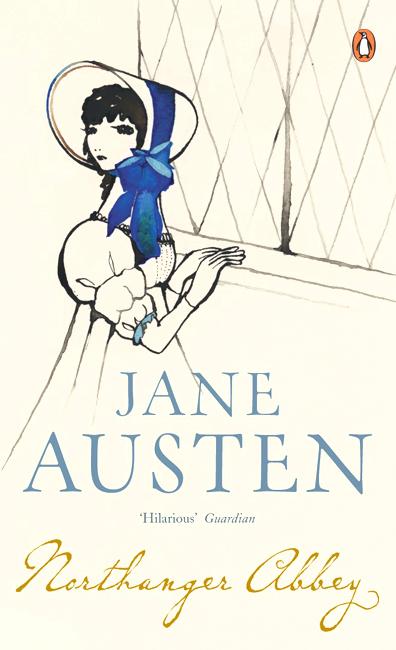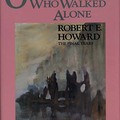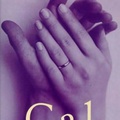Jane Austen: Northanger Abbey
 It’s been a truth universally acknowledged for about 15 years that Pride and Prejudice is my all-time favorite novel by Jane Austen. As regards, however, my second favorite by her, it seems that it’s always the one I read the most recently. Therefore, it is Northanger Abbey now.
It’s been a truth universally acknowledged for about 15 years that Pride and Prejudice is my all-time favorite novel by Jane Austen. As regards, however, my second favorite by her, it seems that it’s always the one I read the most recently. Therefore, it is Northanger Abbey now.
The heroine of the story is Catherine Morland, a seventeen-year old girl whose imagination was shaped by all the gothic novels she perused. Catherine spends her first season in Bath, and at first her sufferings are almost unbearable because she knows not a single soul there. But if someone was born to be a heroine, it’s only natural that sooner or later (usually: sooner) she should meet her hero. Catherine soon strikes up an acquaintance with Henry Tilney, a witty, taunting but otherwise very nice young man, and his father and sister as well. Despite a couple of misunderstandings and other calamities, everything seems to be going well, and when Catherine is invited to the Tilneys’ family home, Northanger Abbey, it seems that her wildest dreams are about to come true and she will have the pleasure of getting to know a true gothic castle which is – supposedly – a home to several frightful ghosts and apparitions. But than it turns out that things are not exactly the way our naive heroine expected.
Critics usually agree that this book is a parody of gothic novels, but I think there’s more to Northanger Abbey than this. True, Henry Tilney enjoys making fun of Catherine because of her obsession with gothic novels, and it’s also true that Catherine often behaves like the heroine of a gothic story and makes herself ridiculous this way – but I think Jane Austen loves novels (all novels, even the gothic stories) so much that I cannot think that she would seriously like to disparage them. As she explains somewhere near the beginning of the story, novels tell you everything there’s to know about human behavior, society and the world as such – and they tell you all this in the most beautiful language, in the most enjoyable manner. Therefore, Austen argues, only those can be called ridiculous and narrow-minded who claim that they refrain from reading any such work saying that it’s „only” a novel.
And Austen doesn’t want to talk argue against her own genre, therefore she doesn’t offend and she’s not painfully sarcastic – she’s only ironic, and she uses irony here as well as in her other novels. The first couple of chapters could be block-quoted the way they are, they are so perfectly witty and entertaining. For instance, Austen’s descriptions of Catherine’s not so heroine-like appearance and personality, and the introduction to our heroines family members (who are, contrary to what you would expect, absolutely lovely and caring) are simply great.
Moreover, Austen is in possession of some amiable self-irony as well. E. g., Catherine never has any trouble getting a good night’s sleep, not even during her greatest emotional crises – and this is not characteristic of the young heroines of romantic or gothic novels. Catherine’s peaceful sleeping habits also remind me of Marianne, the protagonist of Austen’s Sense and Sensibility – she’s exactly the way a heroine should be, and when her feelings are shaken, she can’t get any sleep at all. Of course I’m not sure if this is deliberately self-ironic or not, since Northanger Abbey, even though it was published later, was written before Sense and Sensibility and the other „major” novels. Anyway, it may be possible that Austen modified her text and added some self-ironic details later on. And it also may be possible that all the fitfully slumbering young girls, the protective mothers, the tyrannic fathers and all the other stock characters of Austen’s novels were so prevalent in contemporaneous literature (or reality) that it was virtually impossible to write a novel without featuring them, and this is why they are so abundant in Austen’s fiction as well. In this case, Austen’s self-irony might not be deliberate – but deliberate or not, I like it immensely.
And I like the whole novel immensely, in spite of all its flaws: the abruptly discontinued story-lines, the too sudden ending, Austen’s slightly annoying habit that she makes relatively important characters disappear without a trace, or introduces new characters to the story two pages before the ending, and other juvenile faults, because despite all these, Northanger Abbey is still a very clever and hugely entertaining novel.





